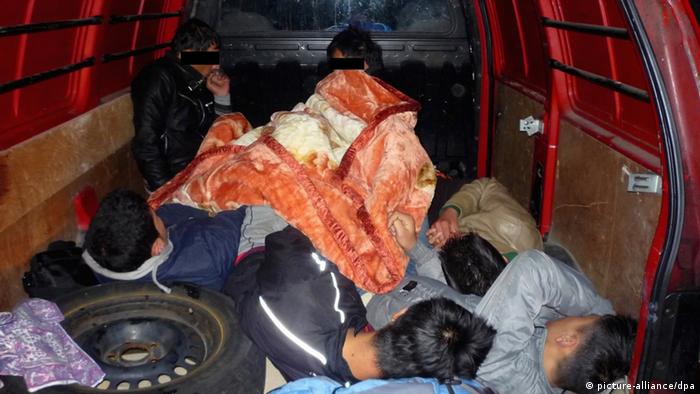The modern slave trade requires a modern system to combat it, and the tech giant wants to help.
More
Around the world there are more than 65 different hotlines that
people can call to report human trafficking. Generally speaking, these
hotlines work independently, with little or no coordination. They are
operating, Jacqueline Fuller, the director of Google Giving, told me,
very "last century."
"The thing is," she continued, "the opposition -- the traffickers -- are using technology in very savvy ways." How could these hotlines compete?
This question, which came out of a Google Ideas summit last July, evolved into a large initiative to organize and coordinate these hotlines, resulting in a $3 million Google Giving grant announced today. With the money, and perhaps some technical assistance too, Google hopes to help to a coalition of three groups -- The Polaris Project, Liberty Asia, and La Strada International -- build a network of existing hotlines, and possibly add new ones as well. The grant brings the total amount Google has given to combating trafficking to $14.5 million.
Jared Cohen, the director of Google Ideas, explains that a network for these systems won't just help connect those in need with the right authorities, but could eventually result in a database that would help these organizations and governments get a better picture of the problem. "For instance, looking at the existing data, we found that the number of reports in the United States of sex workers calling a hotline because they're being controlled by a pimp is double on Wednesday than on any other day of the week," he told me. With more data, and more coordination, other patterns -- seasonal ones, geographic ones, may emerge.
"Human trafficking is one of the oldest challenges that the world has," Cohen said. But old doesn't mean unchanged. The modern trade in humans requires a modern system to combat it, and Google's hoping it can help.
http://www.theatlantic.com/technology/archive/2013/04/google-gives-3-million-to-fighting-human-trafficking/274834/
"The thing is," she continued, "the opposition -- the traffickers -- are using technology in very savvy ways." How could these hotlines compete?
This question, which came out of a Google Ideas summit last July, evolved into a large initiative to organize and coordinate these hotlines, resulting in a $3 million Google Giving grant announced today. With the money, and perhaps some technical assistance too, Google hopes to help to a coalition of three groups -- The Polaris Project, Liberty Asia, and La Strada International -- build a network of existing hotlines, and possibly add new ones as well. The grant brings the total amount Google has given to combating trafficking to $14.5 million.
Jared Cohen, the director of Google Ideas, explains that a network for these systems won't just help connect those in need with the right authorities, but could eventually result in a database that would help these organizations and governments get a better picture of the problem. "For instance, looking at the existing data, we found that the number of reports in the United States of sex workers calling a hotline because they're being controlled by a pimp is double on Wednesday than on any other day of the week," he told me. With more data, and more coordination, other patterns -- seasonal ones, geographic ones, may emerge.
"Human trafficking is one of the oldest challenges that the world has," Cohen said. But old doesn't mean unchanged. The modern trade in humans requires a modern system to combat it, and Google's hoping it can help.
http://www.theatlantic.com/technology/archive/2013/04/google-gives-3-million-to-fighting-human-trafficking/274834/




 The
three, all aged 33, did not enter a plea in the Court of First
Instance. The woman, a 32-year-old maid, said she paid money in her
country to a man to issue her a visa and a ticket to travel to the UAE
where she was supposed to work as a housemaid for an Emirati family.
The
three, all aged 33, did not enter a plea in the Court of First
Instance. The woman, a 32-year-old maid, said she paid money in her
country to a man to issue her a visa and a ticket to travel to the UAE
where she was supposed to work as a housemaid for an Emirati family.
